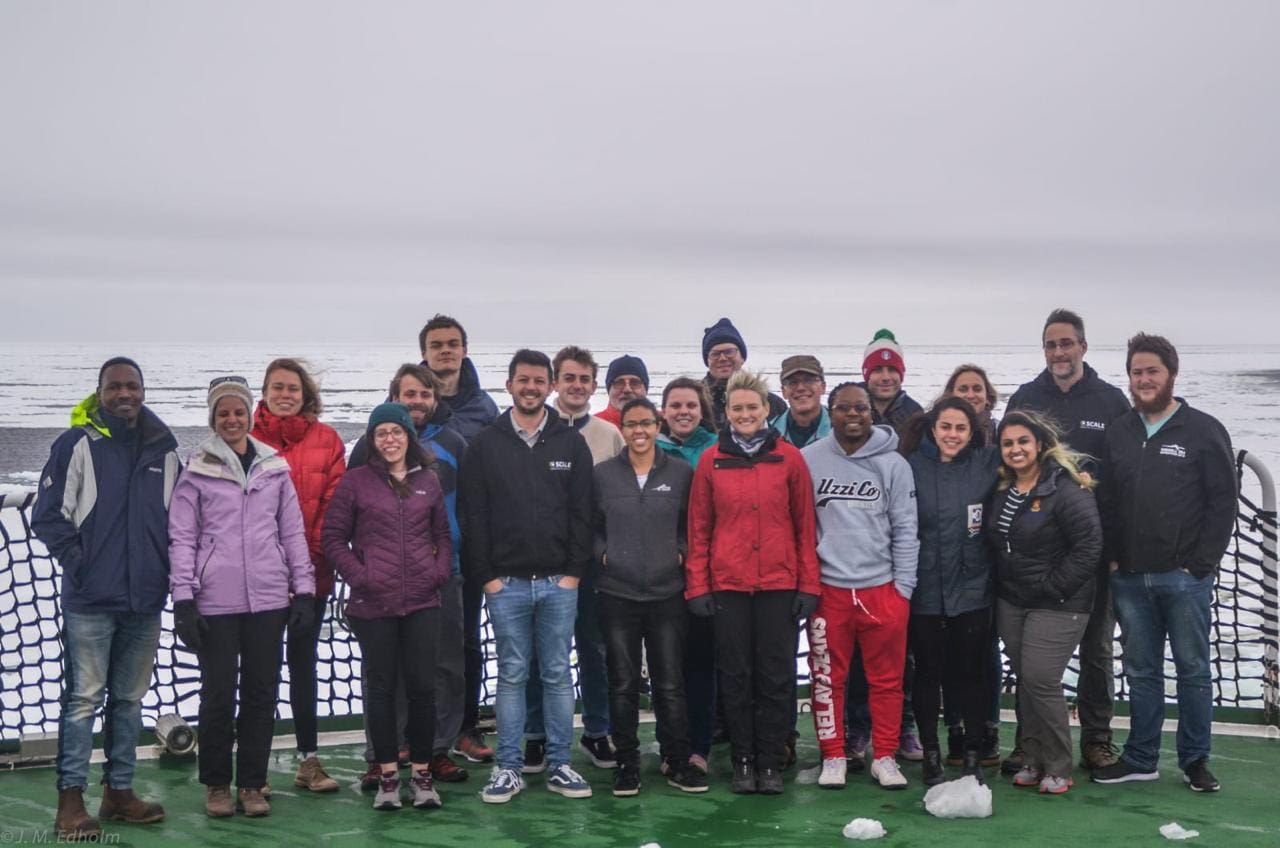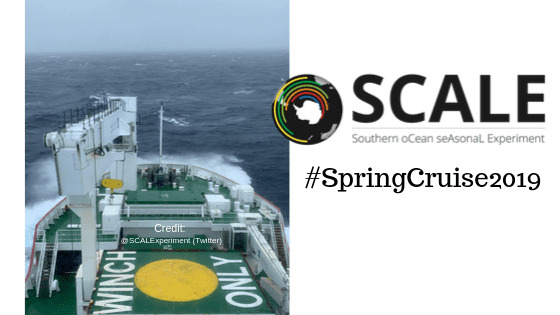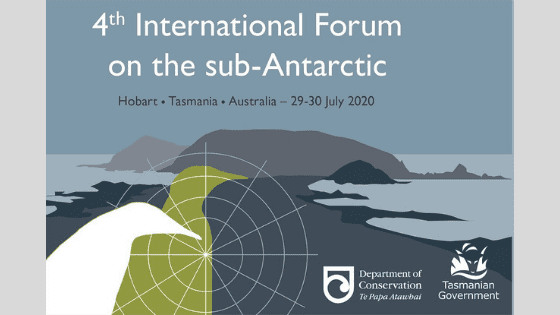
by Ria Olivier | Feb 10, 2020 | Announcement, Research, Science
Opening Date: Monday, 10 February, 2020
Closing Date: Sunday, 31 January, 2021
NRF One Call for Proposals 2020/2021
During the last three years the National Research Foundation (NRF) has embarked on a process designed to enhance and simplify the NRF administrative interface with Researchers, Students and Designated Authorities. This has been done by streamlining its application templates and its Call Opening process, in line with the forthcoming Research Support Strategies by the Department of Science and Technology (DST) and the NRF.
The NRF therefore has pleasure in announcing the opening of the NRF One Call for Proposals.
The Call includes the following funding categories:
- Concept Notes
- Customised Programmes
- Infrastructure
- Institutional Grants
- Postdoctoral Grants
- Research Grants: General
- Research Grants: International
- Research Grants: Thuthuka
- Research Grants: Without Student Support
- Travel, Training and Conference Grants
- Travel, Training and Conference Grants: Scholarship- and Fellowship-holders
Applications must be submitted electronically on the NRF Online Submission System at https://nrfsubmission.nrf.ac.za. All Framework and Funding and Application Guide documents are available on the NRF website at https://www.nrf.ac.za/funding/framework-documents. These documents should also be consulted for the relevant contact persons for each Funding Instrument.

by Ria Olivier | Jan 7, 2020 | Antarctica, Fellowship, Marion Island, Research, SCAR, Science
 2020 funding and research opportunities for scientists and researchers. See all the inks below and make 2020 count.
2020 funding and research opportunities for scientists and researchers. See all the inks below and make 2020 count.
University of Johannesburg, South Africa: Postdoctoral fellowship in marine and/or sub-Antarctic island genomics.
The Centre for Ecological Genomics and Wildlife Conservation at the University of Johannesburg
(https://molzoolab.co.za/) invites applications for a Global Excellenece and Stature (GES 4.0)
postdoctoral research fellowship. Full details
SCAR 2020 Symposium
SERCE will be offering grants to support travel and registration costs associated with attending SCAR2020. These will be up to $2,000 USD, and will be awarded to early-career researchers (ECRs) or researchers from countries with emerging Antarctic programs. An ECR is defined broadly as those researchers who have accumulated up to 7 years of research since completing their PhD (taking into account periods of part-time research or career breaks). link: https://www.scar.org/scar-news/serce-news/serce-funding-scar2020/
Swedish Institute Scholarships for South Africa (SISSA)
Are you a talented and ambitious citizen of South Africa and want to study for a master’s degree in Sweden on a fully-funded scholarship? Find out if you can apply to the Swedish Institute Scholarships for South Africa. Read more at
Swedish Institute
If you have any information of research opportunities, mail us at antarcticlegacy@sun.ac.za

by Ria Olivier | Nov 14, 2019 | News, Research, SA Agulhas II, Science, Southern Ocean, Team Photo

Team Leaders onboard the S.A. Agulhas II (Photo Credit: Johan Edholm).
The SCALExperiment Spring Cruise of 2019 has been a successful cruise so far, thanks to the chief scientist onboard, Dr Thomas Ryan-Keogh and the team leaders of each group pulling their weight.
Meet the team leaders:
Front (L-R): Mutshutshu Tsanwani (CO2), Elisa Seyboth (WHALES), Louise Biddle (GLIDERS), Tommy Ryan-Keogh (OCE/PRODUCTION), Martinique Engelbrecht (VIBRATION), Clare Eayrs (WAVE), Thato Mtshali (IRON), Raquel Flynn (NOCE), Jarishma Gokul (MICROBIO), Kurt Spence (NATM);
Middle (L-R): Eleanor Weideman (PLASTICS), Jan-Lukas Menzel (TRACEX), George Manville (DMS), Mardene de Villiers (SAWS), Jeff McQuaid, Alberto Alberello (WAVE), Simone Louw (PLANKTON), Sven Kranz;
Back (L-R): Joshua Huysamen (GLIDERS), Marthán Nieuwoudt Bester (SEALS), Derek Engelbrecht (BIRDS).
Where is the vessel today? Click here.
Read more about the Spring Cruise here.
Anché Louw, Antarctic Legacy of South Africa, 14 November 2019

by Fishgate@sanap | Oct 15, 2019 | Antarctica, News, Research, SA Agulhas II, Science, Southern Ocean
On 12 October 2019, the S.A. Agulhas II departed on the first ever cruise to the Marginal Ice Zone during spring. This is a very exciting cruise with 97 participants onboard, representing 17 nationalities and 19 different scientific institutions.
Scientific institutions taking part in this dedicated science expedition, funded by the Department of Science and Technology (DST) through the National Research Foundation (NRF):
1. University of Cape Town
2. Stellenbosch University
3. South African Weather Service
4. Cape Peninsula University of Technology
5. Council for Scientific and Industrial Research
6. Department of Environment, Forestry and Fisheries
7. BirdLife South Africa
8. Plymouth Marine Laboratory
9. University of Exeter
10. University of Gothenburg, Sweden
11. University of Pretoria
12. University of Brest – LEMAR – IUEM
13. The University of Melbourne, Australia
14. University of Adelaide, Australia
15. Uppsala University, Sweden
16. Alfred Wegener Institute
17. Florida State University
18. New York University Abu Dhabi
19. Old Dominion University
This 47 day long cruise is managed by Dr Thomas Ryan-Keogh (CSIR), Chief Scientist onboard the vessel and by A/Prof Marcello Vichi (UCT) as land-based Chief Scientist.
The participants are distributed over 19 different teams onboard, covering all the aspects of the SCALE science plan:
| Team | Lead PI | Onboard Team Leader |
| BIRDS | Azwianewi Makhado | Derek Engelbrecht |
| DMS | Tom Bell | George Manville |
| CO2 | Pedro Monteiro | Mutshutshu Tsanwani |
GLIDERS
| Sarah Nicholson
Pedro Monteiro
Sebastian Swart | Louise Biddle
Josh Huysamen |
| IRON | Thato Mtshali | Thato Mtshali |
METEO
| Christo Rautenbach
Marc de Vos | Mardene de Villiers |
| MICROBIO | Thulani Makalanyane | Jarishma Gokul |
| NATM | Katye Altieri | Kurt Spence |
| NOCE | Sarah Fawcett | Raquel Flynn |
| OCE | Shared | Tommy Ryan-Keogh |
| PLANKTON | David Walker | Simone Louw |
| PLASTICS | Peter Ryan | Eleanor Weideman |
| PRODUCTION | Sandy Thomalla | Tommy Ryan-Keogh |
SEAICE
| Sebastian Skatulla
Marcello Vichi
Tokoloho Rampai
Amit Mishra | Justin Pead |
| SEALS | Mia Wege | Marthan Bester |
TRACEX
| Alakendra Roychoudhury
Susanne Fietz | Jan-Lukas Menzel |
| VIBRATION | Annie Bekker | Martinique Engelbrecht |
| WAVE | Alessandro Toffoli
Clare Eayrs | Alberto Alberello
Clare Eayrs |
| WHALES | Ken Findlay | Elisa Seyboth |
Meet Dr Thomas (Tommy) Ryan-Keogh:
Here is a summary of the integrated scientific themes of SCALE:
SEA ICE DYNAMICS AND AIR-SEA-ICE FLUXES
Antarctic sea ice shows a large year to year variability which is not completely captured by forecasting and climate models. Understanding ice mechanics, composition and movement is essential for ice charting and predictive models. The exchange of gases, aerosols, heat and momentum between the atmosphere and ocean through the sea ice is a key factor influencing long-term climate variability and trends. These fluxes are critical to understanding the links between carbon and climate, aerosols and albedo and the influence of terrestrial particles on ocean biogeochemistry.
BIOLOGICAL CARBON PUMP
Changes in climate and sea-ice distribution are likely to affect the composition, abundance, and productivity of phytoplankton, with feedbacks that threaten the ecosystem services they provide, namely sustaining biodiversity, fueling the food web and fisheries, and mediating global climate through an altered efficiency of the biological carbon pump.
PHYSICS TO TOP PREDATORS
The Southern Ocean is subject to strong frontal (meso to sub-mesoscale) activity due to the instability of the Antarctic Circumpolar Current. Nutrient pulses associated with frontal dynamics have the ability to propagate throughout the food chain from lower trophic levels (phytoplankton) to top predators (seabirds and marine mammals). The marginal ice zone environment is an essential habitat for seals and whales throughout the year, and its seasonal variability is a major driver of their feeding behaviour.
DECADAL CHANGES IN OCEAN INTERIOR
The Meridional Overturning Circulation is a global reaching system of surface and deep ocean currents. It is the primary mechanism for the transport and storage of heat, carbon, salt, freshwater and nutrients (including dissolved trace elements) between ocean basins; connecting the surface ocean and atmosphere with the huge reservoir of the deep sea.
DIGITAL TECHNOLOGY SOLUTIONS FOR POLAR ENGINEERING
To advance the scientific basis for ice-going vessels, the S.A. Agulhas II has been the subject of full-scale engineering measurements since 2012. These measurements focus on structural dynamics of the hull and propulsion systems, wave slamming and human comfort. The sensor infrastructure and advanced data analytics position the ship as an ideal platform to explore digital twin technology to assess the state and behaviour of the vessel in near real time within its operational context. These powerful platforms promise to advance education, research, innovation and industrial development related to shipping, oceans and polar research.
To find out more about SCALE (Southern oCean seAsonaL Experiment) and the key research objectives of the cruise – visit www.scale.org.za.
 Follow @SCALExperiment on Twitter for cruise updates.
Follow @SCALExperiment on Twitter for cruise updates.
Anché Louw, Antarctic Legacy of South Africa, 15 October 2019
Edited by : A/Prof Marcello Vichi (UCT)

by Fishgate@sanap | Sep 11, 2019 | Announcement, Antarctica, News, Research, Science, Southern Ocean, sub-Antarctic
Ant-ICON Science and Implementation Plan
Dear Colleagues,
At the end of July, Mecha and I traveled to Plovdiv, Bulgaria to participate in the SCAR Programme Planning Group Leaders Meeting, and present the draft Ant-ICON Science and Implementation Plan to the SCAR Executive Committee.
Both meeting were extremely useful, particularly with regard to identifying synergies between the developing SRPs, and receiving useful guidance and feedback on how the developing Ant-ICON Science and Implementation Plan could be improved.
During the meetings Mecha and I, together with some invaluable input from Daniela Liggett, Chandrika Nath and other attendees, revised the Ant-ICON S&I Plan. We have continued to work on incorporating feedback over the last few weeks, and have now arrived at a near complete draft, which is attached for your further consideration.
Some sections still need a bit of work, but we feel that it is now at a stage where it can be disseminated more broadly to interested members of the SCAR scientific community and other stakeholders to raise the profile of this emerging initiative and hear any feedback that might be forthcoming. We’d also encourage you to disseminate this through your networks to interested colleagues.
Both the plan and an updated overview presentation have been uploaded to the Ant-ICON home page, and can be accessed using the following link under the Publications tab (https://scar.org/science/ant-icon/resources/). Mecha and I will undertake the broader dissemination, through various SCAR mailing lists, directly to key policy end users and other interested stakeholders including NGOs.
Mecha and I also encourage you to disseminate this plan through your networks to help raise awareness and to ensure anyone who is interested in following progress can join the mailing list. I am currently compiling an informal mailing list of interested persons, so if people do indicate interest, please let them know they can contact me directly and I will add their names.
We have a number of tasks ahead of us over the next few months as we aim to finalize the plan. This includes the completion of the Supporting Information that will accompany the S&I Plan, the preparation of a 2-page ‘marketing document’ and finalization of the make-up of the proposed Steering Committee (see section D – Management in the attached). With regard to the latter, please let me know if you would like to express interest in any of the Steering Committee positions as we need to start a list of potential names as soon as possible.
We received considerable input again in the last round, and while it was sometimes challenging to incorporate everything, we think most people’s comments and suggestions have been addressed. Nevertheless, the Science and Implementation Plan is still a work in progress, so please don’t hesitate to let us know if you have further input.
We hope to have a final draft completed by the end of October. It is likely that most of the consultation between now and then will be electronic, however, Mecha and I will hold at least one meeting in the margins of the CCAMLR meetings, which will be in Hobart from the 21 Oct-1 Nov 2019. Please let me know if you are likely to be in Hobart for these meetings and we will ensure that we include you in any correspondence regarding Ant-ICON discussions.
Many thanks once again for your interest and active engagement. It’s a pleasure to work with such a knowledgeable and enthusiastic planning group.
All the best
Aleks and Mecha
Dr. Aleks Terauds
Senior Research Scientist and Section Head |Biodiversity Conservation | Australian Antarctic Division | Kingston | Tasmania | Australia
Chief Officer – SCAR Standing Committee on the Antarctic Treaty System
P: +61 3 6232 3339 |E: aleks.terauds@gmail.com | Alt E: Aleks.Terauds@aad.gov.au

by Fishgate@sanap | Sep 5, 2019 | Announcement, Important Dates, News, Science, Southern Ocean
The 4th International sub-Antarctic Forum will be held in Hobart, Tasmania, Australia on 29-30 July 2020. Save the date in your calendars, and please feel free to circulate this information with your colleagues.
It will be a short forum over 2 days with opportunity abstract submission for short presentations on research, management, policy and science relevant to the sub-Antarctic. There will also be several keynote speakers, panel and large facilitated workshop on future challenges and opportunities for the sub-Antarctic.
It will be a wonderful Forum for researchers and students alike to come and share their findings and explore future opportunities. Some early career researcher travel assistance will be available.
Stay tuned for more information and updates via the website and Twitter @subant2020
Registrations and abstract submissions are yet to open.
Regards
Justine Shaw – Chair of the SCAR Action group “Integrated Science for the sub-Antarctic”
FROM THE WEBSITE
There is nothing sub about the sub-Antarctic!
In July 2020 the Tasmanian Government, with the support of the New Zealand Department of Conservation, is hosting the 4th International sub-Antarctic Forum.
Previous sub-Antarctic Forums have been mainly science focused. The 4th Forum will be multi-disciplinary, encompassing science, policy, management, tourism and fishing, heritage. It will bring together people passionate about the sub-Antarctic to discuss the challenges and pressures facing this special region, share knowledge and explore connections.
Already there has been international interest, and we are keen to ensure that as many countries, organisations and individuals with interests in the Sub Antarctic as possible hear about the Forum and have the opportunity to attend to make the most of the opportunity to cement existing relationships and develop new ones.
The forum will be held in the Antarctic gateway city of Hobart on 29-30 July 2020, immediately before SCAR/COMNAP, also being held in Hobart in 2020.
More details including registration will come in the next few months.
We would be grateful if you could spread the word within your networks.







 Follow
Follow 





